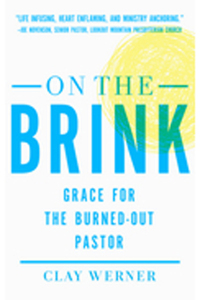1
- Biblical Epistemology – My prolegomena helped me grasp how a Biblical worldview in intellectually credible. The writings of John Frame and N.T Wright on critical realism helped me grasp a way of looking at the world that is neither naive or nihilist. We can perceive what is true, through reason, the Spirit, and the Word, but not all we say is true.
This enabled me to press into a pluralistic context like Austin, Texas with the requisite humility and confidence.
- Systematic Theology – Showed me how the Bible is theologically coherent. Apparent contradictions and various texts can be harmonized to tell us something about the nature, character, and purposes of God.
This enabled me to know God and answer some of the big questions regarding suffering, evil, election and so on.
- Hermeneutics – Enabled me to read and interpret texts well through propositional analysis, grammar, syntax, genre and so on. Discourse analysis was paradigm-shifting for me and taught me how to reason much better (Thank you Dr. Roy Ciampa!).
This enabled me to read the Bible and other books well, to reason well cultural texts and claims, as well as biblical ones.
- Biblical Exegesis – I got to apply hermeneutics to the whole Bible with the guardrails of mentors in order to understand the author’s intent. Lots of Bible. I added a second degree to get more practice and more Bible! In particular, Greg Beale’s categories for OT in NT exegesis helped me grasp how to make sense of what the NT authors do with the OT.
This launched me into the difficult task of showing the church, through preaching, that the two testaments are a whole.Â
- Biblical Theology – The above led me to read diachronically not just systematically, to read along the grain of Scripture so that the grand narrative of Creation-Fall-Redemption-New Creation is always my framework and Christ is at the center. Meredith Kline, Greg Beale, Sean McDonough were all a great help in this. Monotheistic Christology, the understanding that “Jesus is Lord” places Christ into the identity of YWHW simply blew my mind and still does.
Â
That is gospel-Centered and led to a a consistent practice of challenging cultural notions of authority with the authority of Christ, basically preaching and teaching and discipling and counseling people into Jesus as King, not just as Savior

